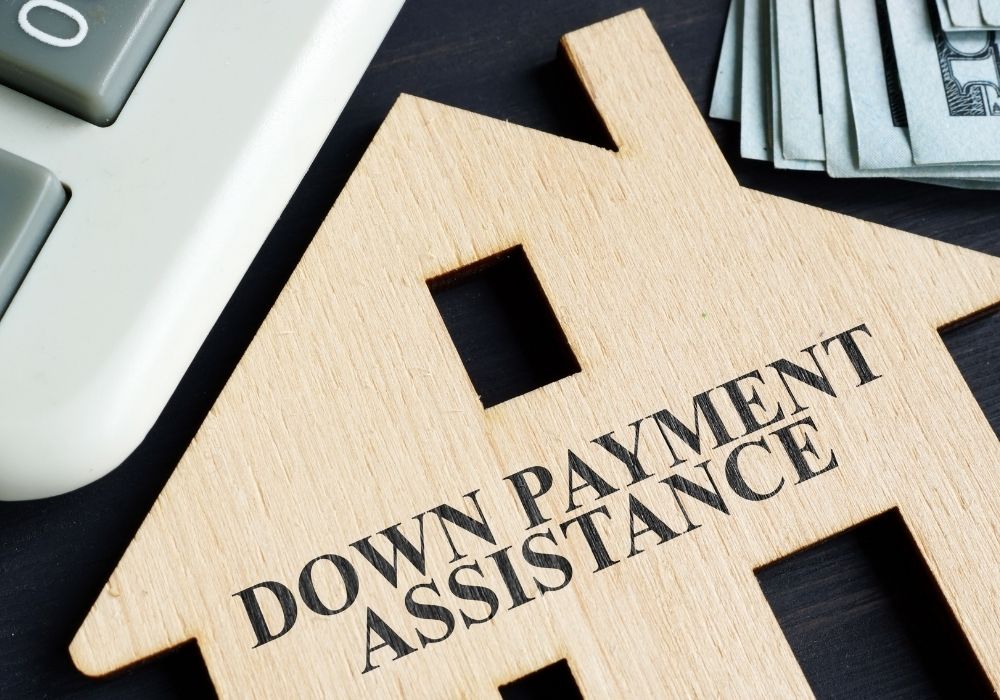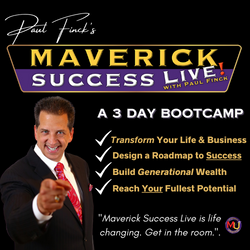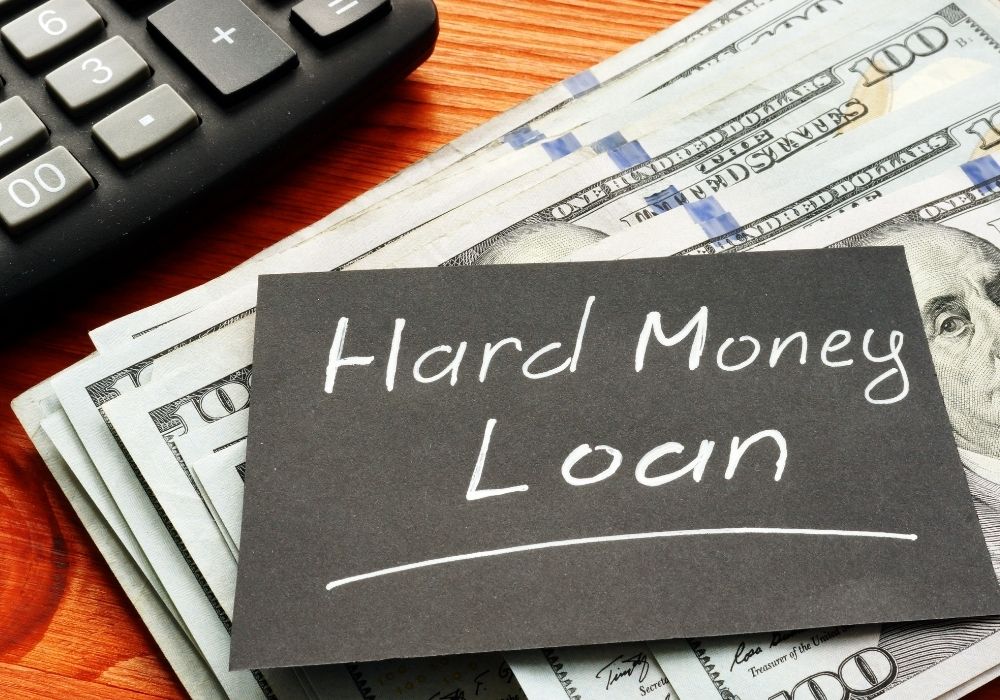IS IT CRAZY TO SELLER FINANCE YOUR RENTALS—OR CRAZY NOT TO?
By Eddie Speed
IS IT CRAZY TO SELLER FINANCE YOUR RENTALS—OR CRAZY NOT TO?
We’re now in a note cycle. It’s as obvious to a note guy like me as when an oil guy hits a gusher.
I’ve been a note guy since 1980. As anyone in any phase of real estate knows, the market is constantly changing and evolving. We either change with it or get left behind. I can say from experience that what worked in one decade wouldn’t work in the next. And so on for the next, and the next, and the next.
Which leads us to 2023. We’re seeing a market phenomenon that’s producing a phenomenal opportunity.
article continues after advertisement
I’ve lived through cycles where owning rental properties made a lot of sense financially. But in today’s market, not as much. You owe it to yourself to test your investment strategy. Run the numbers and compare the profit potential of owning rentals versus selling your rentals with seller financing. Because of today’s high home prices and mortgage rates, I predict you’ll discover it makes more sense to be the bank (with NO expenses like taxes, repairs or insurance) instead of being the landlord (paying ALL those expenses). I bet you’ll also realize how much more income you’ll bring in every month by seller financing instead of renting.
HERE’S WHY NOW IS THE TIME FOR SELLER FINANCING
If you’ve ever dropped a coin into a slot machine, your eyes would pop out if all the dials lined up. Well, when it comes to dropping some money on an investment, all the dials are lining up on seller financing—especially in regions of the country where rents have dropped significantly. Here are some of the factors we’re seeing in today’s market:

• RENTAL HOUSE AFFORDABILITY The cost of buying a potential rental house is the highest since at least 1996. If you get a mortgage around 8%, and pay an inflated price due to the pandemic, you’ll pay 60% more than buying the same house three years ago. This makes it very challenging to scale up your rental business. On the other hand, if you sell your rental houses now with seller financing, you’ll get substantially more than three years ago. And you’ll be getting double or triple the interest now than you would have gotten three years ago.
• INCREASES IN RENT ARE WAY BELOW INCREASES IN PRICE Averaging all US markets together, the cost of buying a house is up 60%, but rents have risen only 22% during the same 3-year period. In many markets (mainly in the western half of the country), rents have declined since last year.
• SOFTER DEMAND FOR RENTAL PROPERTIES A glut of newly built apartments is depressing rent growth. And according to the St. Louis Federal Reserve, an additional one million units currently under construction will hit the market soon. Fannie Mae predicts vacancy rates in multifamily buildings will reach 6.25% in 2024, which exceeds the 15-year average of 5.8%. Apartment stocks are underperforming. To avoid vacancies, apartments lower the rent which depresses rental income for landlords.
article continues after advertisement
• CREDIT AVAILABILITY Underwriting standards have changed drastically because of the covid pandemic. Traditional lenders arenow hurting from over two million delinquent home loans. Money from banks and mortgage companies has gotten tighter and tighter, putting eager buyers—even ones with steady jobs and solid credit—in the penalty box. The mortgage credit availability index stood at 96.3 in October, 2023; which is about half what it was three years ago. Well-qualified homebuyers are getting turned down by traditional lenders; driving them right into the arms of seller financing.
• HOME APPRECIATION HAS LEVELED OFF Even though home prices shot up during the pandemic, prices aren’t maintaining the same trajectory. They’ve hit a plateau. Goldman Sachs expects home prices and mortgage rates to increase only 1.7% in the next year. That’s not just flat, that’s “stand on a brick and see fifty miles flat.” Now’s the time to sell your rental portfolio at top dollar and cash out before home prices stagnate.
• TAX ADVANTAGES When you sell a rental property that has greatly appreciated, you’ll owe a bundle in capital gains taxes. But if you take the profit over time through seller financing, the Internal Revenue Service allows you to spread out the gains using the “Installment Sales Method.” This technique has allowed countless sellers to pay no capital gains taxes at all. Of course, there’s always the possibility the IRS could close this loophole in the future, so better take advantage of it now.
YOU CAN MAKE MORE THAN DOUBLE THE MONTHLY INCOME FROM SELLER FINANCING THAN LANDLORDING
Today’s home prices and interest rates are both elevated. So when you sell your rental with seller financing, the monthly mortgage payment you receive will be much larger than your monthly rent check.
In the rental world, there’s the “50% Rule” (also what they call “The Magic Number”). It means 50% of rental income goes toward expenses. If the rent checks you get don’t surpass the 50% Rule—after paying taxes, repairs, and insurance—you’ll lose money. But as a note owner in today’s market—who DOESN’T pay taxes, repairs, and insurance—even a mediocre note would easily beat the 50% Rule of profitability. And with today’s high interest rates being paid TO you instead of BY you, the checks you get every month could be lots more than you get from rent.
GET YOUR APPRECIATION NOW INSTEAD OF YEARS FROM NOW
A frequent objection people raise when they compare note investing to landlording is that when you own a rental house, the property appreciates over time. It’s a fair question that deserves a fair answer.
As long as the rental property is kept in good repair, and the neighborhood doesn’t decline, its value should increase over the years until you decide to sell it. But let’s say there are two investors; one buys a rental property, the other buys a note, and both pay the same amount. Over ten years, the note investor makes double the monthly income compared to the landlord who pays taxes, insurance, and repairs for ten years. If the landlord sells the property after ten years, he gets the appreciation—but the rent checks stop (unless he sells with seller financing). As for the note investor, after ten years he still has twenty more years of payments coming!
Even if the landlord’s rental house appreciates roughly 10% a year, fire up your calculator and you’ll see how much more the note investor makes over the life of their investments.
THEN THERE’S THE HEADACHE FACTOR
Lots of landlords think they’re getting an investment, but it turns into a job. You have to deal with showings, repairs, and midnight calls from tenants to fix a leaky hot water heater. But when you own the note, repairs are the homeowner’s headaches. Every investor who has transitioned from landlording to seller financing will agree: You can own a thousand notes for the same amount of work as owning a hundred rentals.
If the note investor’s homeowner stops paying, your investment is completely collateralized by the property. But if the landlord’s tenant stops paying, good luck collecting the back rent.
ARE YOU READY TO TURN THE CORNER ON YOUR CAREER?
It’s been said that “Timing is to investments what location is to real estate.” The time is now and the door is wide open for you to consider selling your rental properties with seller financed notes. Don’t keep doing things the same way as always, and don’t look past this tremendous window of opportunity to boost your net worth like never before.
Learning the tools of seller financing and note creation will open up a whole new world of monthly cashflow and wealth-building—and we make it surprisingly easy at NoteSchool. The first step is to take my free 2-hour Master Class where you’ll be introduced to the lucrative world of notes. Just visit: NoteSchool.com/EddieMasterClass
Eddie Speed: Author, Teacher, Innovator, Visionary
Eddie grew up around horses, but in 1980 he learned there’s more wealth to be built with a pencil than a rope. That’s when his father-in-law, a pioneer of seller financed notes, taught him the ropes of the note business. Eddie has been perfecting his craft ever since, introducing creative innovations that changed the way note investing is done.
As the nation’s most experienced note buyer, he has closed over 50,000 note deals. He launched NoteSchool in 2000, where anyone can learn the art of creative financing for performing and non-performing discounted mortgage notes. He is the owner and president of Colonial Funding Group LLC, which acquires and brokers discounted real estate secured notes, and he’s a principal in a family of Private Equity funds that acquire bulk note portfolios.
Thousands of NoteSchool students have testified to the wealth building, life-changing power of his tried-and-true, data-driven approach to note investing.
Learn live and in real-time with Realty411. Be sure to register for our next virtual and in-person events. For all the details, please visit Realty411Expo.com or our Eventbrite landing page, CLICK HERE.


























































